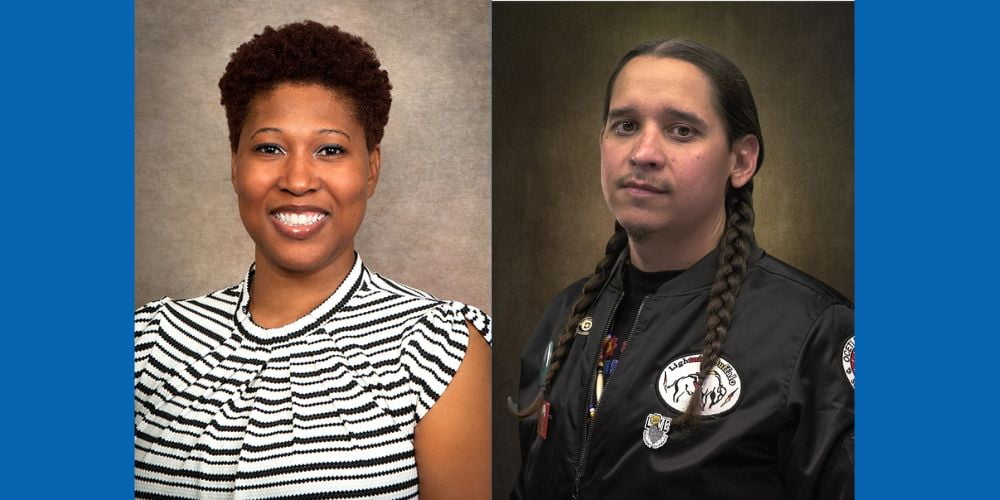Strengthening connections at Social Work and Law Symposium

An inaugural symposium brought together social work professionals, legal experts and students alike from around the country to explore the strong connections they share.
Founded by Sherece Shavel, assistant professor of practice at The University of Texas at Arlington’s School of Social Work, the first annual Social Work and Law National Symposium drew more than 500 people from the U.S. and around the world to advance the practice of social work within the context of the legal environment.
“There’s a greater need for lawyers, advocates, law enforcement, social workers, and others to realize the power of collaboration to bridge our justice-oriented work in tandem,” Shavel said. “We have different philosophical postures, but when we work together, we’re able to maximize impact.”
Shavel’s goal is to strengthen social workers’ competence in using legal tools and participating in the legal process. She is also behind a course, in collaboration with the UTA Pre-Law Center, where students learn to understand the legal environment through a social work lens.
In her keynote address, Lori James-Townes, executive director of the National Association of Public Defense, discussed how intertwined forensic social workers are in the legal process. She explained that the connection between social workers and the justice system dates as far back as the 18th century, when the work of two social workers could be linked directly to prison reform policy in England.
“Advocating for people who are poor, who are directly impacted, or for people who we lock up for the rest of their lives is just something that social workers do,” she said.
Among the additional presenters was UTA Master of Social Work student Stephen Silva Brave. He is a volunteer member of the organization Missing and Murdered Indigenous Women (MMIW) TX Rematriate, which aims to reunite missing indigenous women with their families.
“I saw the Social Work and Law Symposium as an opportunity for us to share about the problem of violence against Indigenous Women and the MMIW crisis with an audience of people who may be able to help with much-needed resources,” Brave said. “I am grateful for the opportunity to share our message.”
The impact from this inaugural symposium is just beginning. A newly created Educator Task Force comprising social workers and attorneys will discuss how to advance a forensic social work curriculum within schools of social work. Also established was a student mentorship program where students interested in pursuing a forensic social work career are connected with professionals in the field.
“We need to have more social workers who are competent from a socio-legal sense to be able to not only master social work environments, but master legal environments to make an exponential impact with and for those we’re serving in the community,” Shavel said.